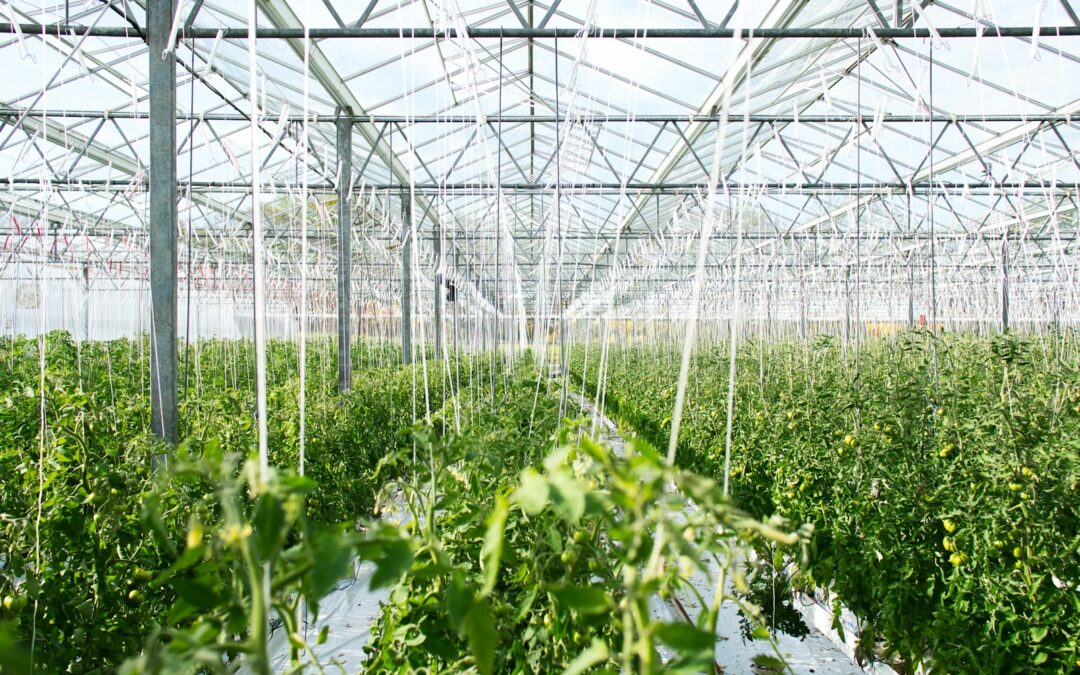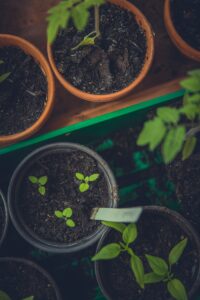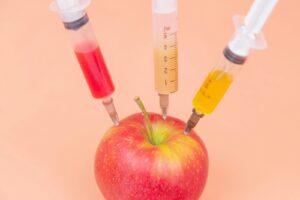The Transformative Impact of Biotechnology on Agriculture
Biotechnology in Agriculture: Boosting Crop Yields
Biotechnology in agriculture is revolutionizing the industry by using genetic engineering and other biotechnological tools to enhance crop yields, pest resistance, and nutritional content. This innovative approach is particularly relevant for regions like Saudi Arabia and the UAE, where sustainable agriculture is a key strategic goal. By leveraging biotechnology, these countries are not only improving agricultural productivity but also addressing food security and environmental sustainability.
In Saudi Arabia, biotechnology is playing a critical role in increasing crop yields. Through genetic engineering, crops are being developed to thrive in the country’s arid climate. These genetically modified crops are more resilient to extreme temperatures and water scarcity, ensuring consistent and higher yields. The Saudi government’s investment in agricultural biotechnology aligns with its Vision 2030, which emphasizes the importance of food security and economic diversification. By adopting these advanced agricultural practices, Saudi Arabia is positioning itself as a leader in sustainable farming.
The UAE is also at the forefront of agricultural biotechnology. In Dubai, research centers are developing high-yield crops that can grow in challenging environments. By incorporating genetic modifications, these crops are designed to maximize output while minimizing resource usage. This focus on biotechnology in agriculture supports the UAE’s National Food Security Strategy 2051, which aims to create a sustainable and resilient food system. The use of biotechnological tools to enhance crop yields is a strategic move that benefits both the economy and the environment.
Pest Resistance Through Biotechnology
Pest resistance is another critical area where biotechnology in agriculture is making significant strides. Genetic engineering allows for the development of crops that are inherently resistant to pests, reducing the need for chemical pesticides. This advancement is particularly beneficial for countries like Saudi Arabia and the UAE, where sustainable farming practices are increasingly prioritized.
In Saudi Arabia, biotechnological innovations are being used to develop pest-resistant crops that can withstand the region’s unique pest challenges. These genetically engineered crops reduce the reliance on chemical pesticides, which can have harmful environmental and health impacts. By promoting the cultivation of pest-resistant crops, Saudi Arabia is enhancing its agricultural sustainability and protecting its natural resources. This approach also aligns with the Kingdom’s broader environmental goals and its commitment to sustainable development.
The UAE is similarly leveraging biotechnology to combat agricultural pests. In Dubai, researchers are using genetic engineering to create crops that can resist local pests without the need for harmful chemicals. This not only improves crop health and yields but also contributes to a safer and more sustainable agricultural environment. The focus on pest resistance through biotechnology supports the UAE’s efforts to build a robust and eco-friendly agricultural sector.
Enhancing Nutritional Content with Biotechnology
Biotechnology in agriculture is also enhancing the nutritional content of crops, addressing malnutrition and improving public health. By using genetic engineering, crops can be fortified with essential vitamins and minerals, providing a more nutritious food supply. This advancement is crucial for regions like Saudi Arabia and the UAE, where improving public health is a strategic priority.
In Saudi Arabia, biotechnology is being used to develop crops with enhanced nutritional profiles. These biofortified crops are designed to address specific nutritional deficiencies, providing essential nutrients that may be lacking in the local diet. By incorporating these nutritionally enhanced crops into the food supply, Saudi Arabia is making significant strides in improving public health and reducing malnutrition. This initiative is part of the Kingdom’s broader efforts to enhance the quality of life for its citizens.
The UAE is also embracing biotechnology to improve the nutritional content of its crops. In Dubai, researchers are focusing on biofortification to ensure that staple crops provide essential nutrients. This approach not only improves the health of the population but also supports the UAE’s long-term public health goals. By investing in biotechnological solutions, the UAE is addressing nutritional challenges and promoting a healthier society.
#Biotechnology #Agriculture #GeneticEngineering #CropYields #PestResistance #NutritionalContent #SaudiArabia #UAE #Riyadh #Dubai #ChangeManagement #ExecutiveCoaching #BusinessSuccess #ManagementConsulting #AI #Blockchain #Metaverse #GenerativeAI #Leadership #ProjectManagement













